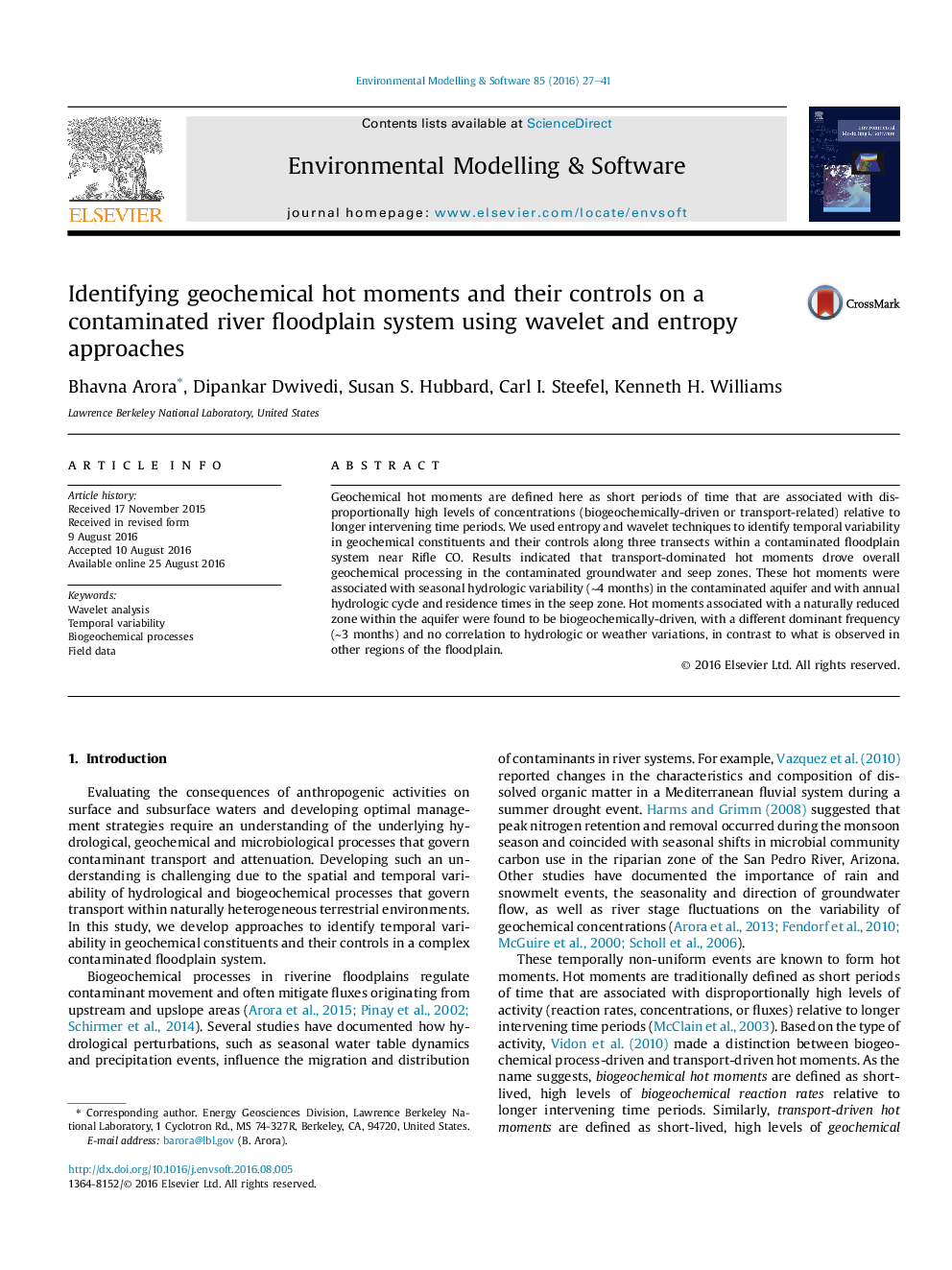| Article ID | Journal | Published Year | Pages | File Type |
|---|---|---|---|---|
| 4978343 | Environmental Modelling & Software | 2016 | 15 Pages |
Abstract
Geochemical hot moments are defined here as short periods of time that are associated with disproportionally high levels of concentrations (biogeochemically-driven or transport-related) relative to longer intervening time periods. We used entropy and wavelet techniques to identify temporal variability in geochemical constituents and their controls along three transects within a contaminated floodplain system near Rifle CO. Results indicated that transport-dominated hot moments drove overall geochemical processing in the contaminated groundwater and seep zones. These hot moments were associated with seasonal hydrologic variability (â¼4 months) in the contaminated aquifer and with annual hydrologic cycle and residence times in the seep zone. Hot moments associated with a naturally reduced zone within the aquifer were found to be biogeochemically-driven, with a different dominant frequency (â¼3 months) and no correlation to hydrologic or weather variations, in contrast to what is observed in other regions of the floodplain.
Related Topics
Physical Sciences and Engineering
Computer Science
Software
Authors
Bhavna Arora, Dipankar Dwivedi, Susan S. Hubbard, Carl I. Steefel, Kenneth H. Williams,
